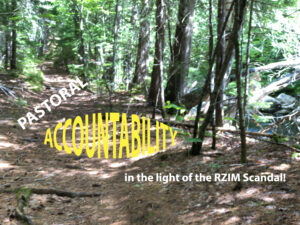Posted on Nov 17, 2021 in BLOG |
 “I don’t have the time for sermon preparation with all the other pastoral responsibilities that demand my attention.”
“I don’t have the time for sermon preparation with all the other pastoral responsibilities that demand my attention.”
“Other preachers say it better than me, so why not use their messages to reach my people better?”
“The communication experts know how to craft a message that will attract people much better than I do.”
“If we are going to reach more people, we need to be spending more time studying people than we do studying the Bible.” Read more…
Posted on Sep 7, 2021 in BLOG |

A THREE-LEGGED STOOL – All expositional preaching rests on a three-legged theological stool, 1) exegetical theology, 2) biblical theology, and 3) pericopal theology. These three legs are all necessary for expository preaching.
FIRST LEG: EXEGETICAL THEOLOGY
In 1981, Walter Kaiser sounded a grim warning about a growing crisis in evangelical preaching. The crisis has only grown worse since he warned us about it 40 years ago. The crisis in evangelical preaching is the loss of exegetical theology as a foundation for our sermons.[1] Read more…
Posted on Aug 5, 2021 in BLOG |

“No one knows the Bible today, so talking about the Bible is boring to people.”
“The Bible is not relevant to my daily life. Who cares what happened to Hosea?”
“Our world has changed, so we need sermons that relate to our changed world?”
“You have to preach about what people want to hear if you want to help them with what they need to know.”
“Why do you spend all that time in the exegesis of the text? All that work studying the Bible won’t help you understand the needs of people.” Read more…
Posted on Jun 30, 2021 in BLOG |

SHOCKING STAT: Less than 10% of evangelical sermons mentioned the words sin, salvation, heaven, or hell!
The statistic comes from a database of almost 50,000 sermons compiled by the Pew Research Center, which were delivered between April 7 and June 1, 2019.[i] Much evangelical preaching today identifies human needs and proclaims Christ as a need-fulfiller. It is a man-centered gospel. Bill Hull nicknamed it “gospel Americana.”[ii] The message is simple. “God loves you and has a wonderful plan for your life!” The result of such a reductionist message is that many people become converts who want no part of the demands of being a disciple.[iii]
Read more…
Posted on May 25, 2021 in BLOG |
 C.H. Spurgeon supposedly said that he took his text and made a “beeline to the cross.” The purpose of every sermon, then, should be to preach the cross. There is no evidence that Spurgeon ever said these words, but they represent a common viewpoint used to justify a singular purpose for all preaching.[i] Every sermon has one purpose, in this view, and that purpose is to lead people to Christ on the cross. Every individual Scripture text intends to point us in some way to redemption in Christ.[ii]
C.H. Spurgeon supposedly said that he took his text and made a “beeline to the cross.” The purpose of every sermon, then, should be to preach the cross. There is no evidence that Spurgeon ever said these words, but they represent a common viewpoint used to justify a singular purpose for all preaching.[i] Every sermon has one purpose, in this view, and that purpose is to lead people to Christ on the cross. Every individual Scripture text intends to point us in some way to redemption in Christ.[ii]
Is this what Paul said in 2 Timothy 3:16-4:4? No, not at all. Heralding the word (2 Tim. 4:2) means equipping the saints for “every good work” (2 Tim. 3:17). The training in righteousness (2 Tim. 3:16) starts with the cross but does not end at the cross. Sermons become predictable when every sermon must end at the cross.
[iii] Read more…
Posted on Apr 26, 2021 in BLOG |

A recent Gallup poll is sending shockwaves through the evangelical world. For the first time in Gallup’s polling history, church membership fell below 50% in 2020. It was 70% in 2000, but twenty years later it is now 47%.[1] The numbers are worse if you look at them generationally. Only 8% of white millennials identify as evangelical compared to 26% of seniors.[2] Our world is increasingly secular, and young people are increasingly turning away from the church.
Russell Moore points out an astonishing reality. People are turning away from the church not merely because they reject the doctrines of the church but because they think the church rejects the doctrines of the church. It is sad when people turn away from the church because they do not believe in the authority of the Bible. It is tragic when people turn away from the church because they do not believe that we believe in the authority of the Bible. Our preaching has become secular in our quest to attract the world to the church. Moore writes: Read more…
Posted on Mar 17, 2021 in BLOG |

Al Mohler labeled much evangelical preaching today as “moralistic fables” because the sermons used biblical stories as examples to teach moral truths. Christ and the cross should be the focus of every sermon because they are the focus of every biblical text.[1] G.K. Beale, in a recent article, stressed that every verse in Scripture points to Christ and must be used to preach Christ, not moralism. He asked how our preaching is different from rabbinic teaching if we fail to focus on Christ and redemption.[2]
Christocentric preachers argue that when we use examples from the lives of biblical characters to teach moral and ethical values, we are guilty of moralism – using the Bible to emphasize our efforts to please God instead of preaching what God has done for us. Exemplification, using Bible stories and characters to teach moral values, is wrong to the redemptive-historical preachers. Read more…
Posted on Feb 16, 2021 in BLOG |
PASTORAL ACCOUNTABILITY IN THE LIGHT OF THE RZIM SCANDAL
The news about the serial sexual misconduct of Ravi Zacharias has exploded around the world in recent days. It is sordid, disturbing, and horribly destructive, first to the women who have been abused and then to the ministry that enabled the abuse. Our hearts go out to all the women he has victimized. You can read the horrifying details
here and
here. I am deeply saddened to learn that the witness of a man I respected, whose global ministry was powerfully effective for Christ’s kingdom, lies in tatters; his integrity shredded by his private sins.
[1] The RZIM scandal should be a warning to all of us that we will stand before Christ one day to give an account for sins done in private (2 Cor. 5:10, 1 Cor. 4:5).
Read more…
Posted on Jan 19, 2021 in BLOG |

The images are jarring, borderline blasphemous. The mob attacking the capitol on January 6 unfurled a massive banner at the top of the steps proclaiming, “JESUS 2020,” while marchers carried flags announcing, “TRUMP 2020.” An American flag blew in the wind as the mob broke down the doors to the capitol building. On one side of the flag, the words read, “Jesus is my Savior,” and on the other side of the flag were the words, “Trump is my President.”
Read more…
Posted on Dec 10, 2020 in BLOG |
 Crowds pursued Him. People searched out Jesus even when He tried to get away. Thousands gathered on hillsides and shoresides overlooking the Sea of Galilee to hear Him preach. They could not get enough of His messages. Jesus talked their language – the language of the average man. His messages made spiritual ideas practical and popular … until they didn’t! Jesus dove deeper into spiritual truth. He delved into difficult theological concepts using sometimes mysterious language. The words became harder to understand and accept, so they left Him. It turned out that many disciples were not disciples. They were merely followers who were not interested in learning the words that came from God (John 6:59-66). Read more…
Crowds pursued Him. People searched out Jesus even when He tried to get away. Thousands gathered on hillsides and shoresides overlooking the Sea of Galilee to hear Him preach. They could not get enough of His messages. Jesus talked their language – the language of the average man. His messages made spiritual ideas practical and popular … until they didn’t! Jesus dove deeper into spiritual truth. He delved into difficult theological concepts using sometimes mysterious language. The words became harder to understand and accept, so they left Him. It turned out that many disciples were not disciples. They were merely followers who were not interested in learning the words that came from God (John 6:59-66). Read more…
 “I don’t have the time for sermon preparation with all the other pastoral responsibilities that demand my attention.”
“I don’t have the time for sermon preparation with all the other pastoral responsibilities that demand my attention.”



 C.H. Spurgeon supposedly said that he took his text and made a “beeline to the cross.” The purpose of every sermon, then, should be to preach the cross. There is no evidence that Spurgeon ever said these words, but they represent a common viewpoint used to justify a singular purpose for all preaching.
C.H. Spurgeon supposedly said that he took his text and made a “beeline to the cross.” The purpose of every sermon, then, should be to preach the cross. There is no evidence that Spurgeon ever said these words, but they represent a common viewpoint used to justify a singular purpose for all preaching.


 The images are jarring, borderline blasphemous. The mob attacking the capitol on January 6 unfurled a massive banner at the top of the steps proclaiming, “JESUS 2020,” while marchers carried flags announcing, “TRUMP 2020.” An American flag blew in the wind as the mob broke down the doors to the capitol building. On one side of the flag, the words read, “Jesus is my Savior,” and on the other side of the flag were the words, “Trump is my President.”
The images are jarring, borderline blasphemous. The mob attacking the capitol on January 6 unfurled a massive banner at the top of the steps proclaiming, “JESUS 2020,” while marchers carried flags announcing, “TRUMP 2020.” An American flag blew in the wind as the mob broke down the doors to the capitol building. On one side of the flag, the words read, “Jesus is my Savior,” and on the other side of the flag were the words, “Trump is my President.”  Crowds pursued Him. People searched out Jesus even when He tried to get away. Thousands gathered on hillsides and shoresides overlooking the Sea of Galilee to hear Him preach. They could not get enough of His messages. Jesus talked their language – the language of the average man. His messages made spiritual ideas practical and popular … until they didn’t! Jesus dove deeper into spiritual truth. He delved into difficult theological concepts using sometimes mysterious language. The words became harder to understand and accept, so they left Him. It turned out that many disciples were not disciples. They were merely followers who were not interested in learning the words that came from God (John 6:59-66).
Crowds pursued Him. People searched out Jesus even when He tried to get away. Thousands gathered on hillsides and shoresides overlooking the Sea of Galilee to hear Him preach. They could not get enough of His messages. Jesus talked their language – the language of the average man. His messages made spiritual ideas practical and popular … until they didn’t! Jesus dove deeper into spiritual truth. He delved into difficult theological concepts using sometimes mysterious language. The words became harder to understand and accept, so they left Him. It turned out that many disciples were not disciples. They were merely followers who were not interested in learning the words that came from God (John 6:59-66). 